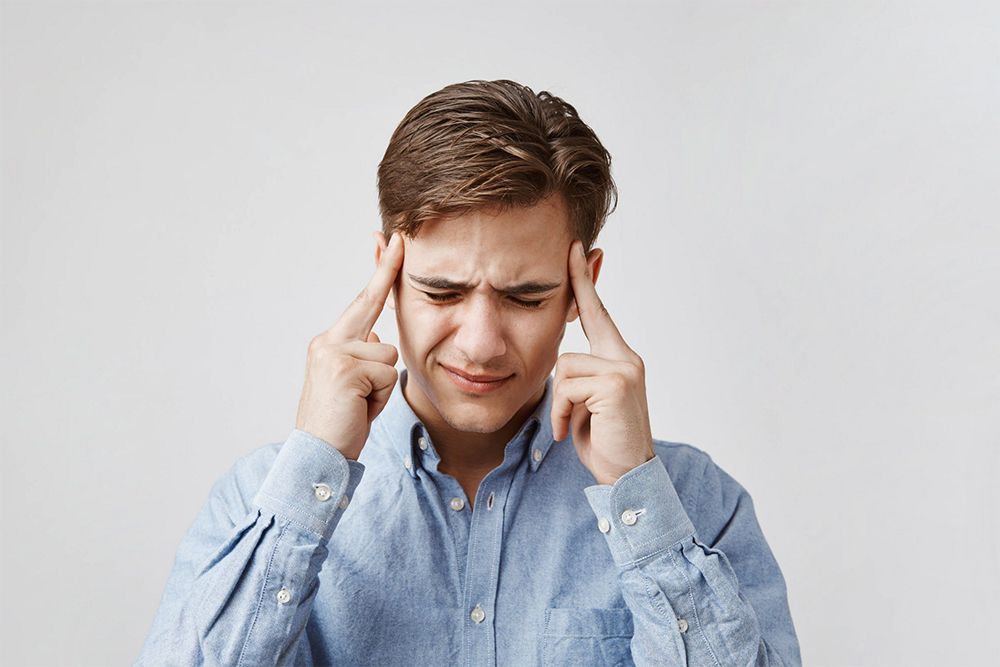If you are one of the estimated six million people in the United States who suffer from cluster headaches, you know how debilitating they can be. Cluster headaches are usually one-sided and very severe, often described as feeling like a hot poker in the eye.
Cluster headaches are often associated with certain triggers, such as alcohol, and certain foods can also trigger attacks. If you are prone to cluster headaches, it is important to be aware of the foods that can trigger an attack and to avoid them.
Here are foods that may trigger your Cluster headaches
MSG, or monosodium glutamate
MSG, or monosodium glutamate, is a flavor enhancer often added to canned vegetables, soups, and processed meats. While it is safe for most people, some may experience adverse reactions to MSG, including headaches, sweating, flushing, chest pain, and nausea.
For people with cluster headaches, MSG may trigger an attack. Cluster headaches are a type of headache that comes in cycles, with each cycle lasting weeks or months. Attacks usually occur at the same time each day and last for 30 minutes to three hours. MSG may trigger an attack or make it worse. If you are prone to cluster headaches, avoid foods that contain MSG.
Aged cheese
Another food that has been known to trigger cluster headaches is aged cheese. This includes cheese that has been aged for more than two months. Aged cheese contains tyramine, which can trigger headaches. Some foods may trigger your cluster headaches, and one of them is aged cheese. Aged cheese contains a tyramine chemical, which can trigger cluster headaches in some people. If you’re prone to cluster headaches, you may want to avoid aged cheese or at least eat it in moderation.
Alcohol
Cluster headaches are one of the most debilitating types of headaches a person can experience. And while there are many triggers for cluster headaches, alcohol is common.
There are certain types of alcohol that are more likely to trigger cluster headaches, including red wine, beer, and champagne. And while it’s not clear why alcohol is a trigger for some people, it’s thought that it may be because alcohol dilates blood vessels, which can lead to headaches.
Chocolate
When it comes to foods that may trigger your cluster headaches, chocolate is one of the most common culprits. While there is no definitive answer as to why this is the case, there are some theories. One theory is that the compounds in chocolate, including caffeine, can constrict blood vessels in the brain, which can lead to a cluster headache. Another theory is that the sugar in chocolate can cause a spike in blood sugar levels, which can also trigger a cluster headache.
If you are someone who suffers from cluster headaches, it is important to be aware of the foods that may trigger them. Chocolate is one of the most common triggers, so it is best to avoid it if possible.
Cold foods
Cold foods are among those foods that may trigger cluster headaches. While you may not be able to avoid all cold foods, knowing which ones may trigger your headaches can help you make better choices. Here are some cold foods that may trigger your cluster headaches:
-Ice cream
-Frozen yogurt
-Gelato
-Sherbet
-Popsicles
-Fruit cups
-Ice chips
You may want to avoid these cold foods if you have a cluster headache. While you may not be able to avoid all cold foods, knowing which ones may trigger your headaches can help you make better choices to lessen the pain. You can check out clinical trials at Power if you’re looking for additional treatment options for Cluster Headache.
Caffeine
When it comes to caffeine, it’s important to know your limit. For some people, even small amounts of caffeine can trigger cluster headaches. Foods and drinks that contain caffeine include coffee, tea, energy drinks, chocolate, and some sodas.
If you’re a cluster headache sufferer, it’s important to know the foods and drinks that contain caffeine. By avoiding caffeine, you may be able to reduce the frequency and severity of your headaches.
Artificial sweeteners
While artificial sweeteners are often used as a sugar substitute to promote weight loss or help manage diabetes, some research suggests that certain types of artificial sweeteners may actually trigger cluster headaches. In a study of cluster headache sufferers, aspartame and saccharin were found to be the most common triggers.
While the jury is still out on whether or not artificial sweeteners are actually the cause of cluster headaches, the fact remains that many sufferers find that these products do trigger their headaches. If you are a cluster headache sufferer, it may be worth avoiding artificial sweeteners altogether or at least limiting your intake.

